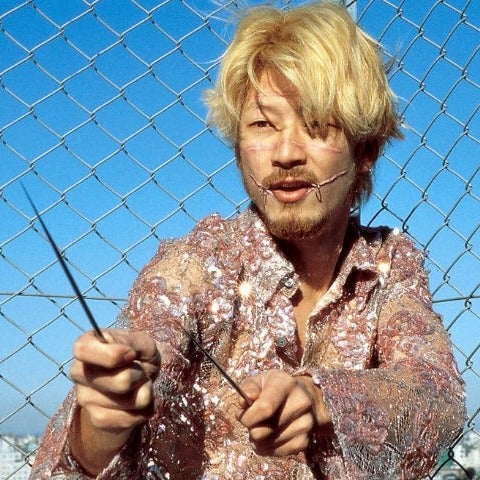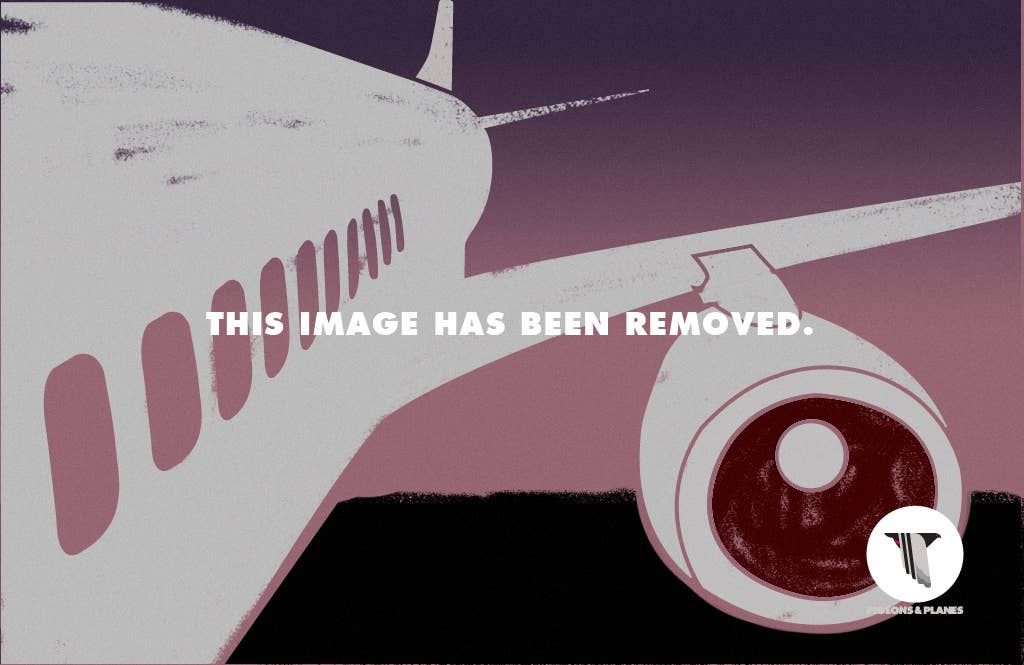1.

Image via Yung Lean on Facebook
By Joe Price
They don’t want to admit it, but labels aren’t as important as they once were. If it wasn’t already clear, 2014 really drove the point home. If I were to tell you ten years ago that a Swedish rapper obsessed with Arizona iced tea and being sad could go on a sold-out world tour, you’d probably think I was batshit insane. Today, you’d probably shrug it off and be like, “Yeah, probably.” This isn’t because of aggressive marketing schemes and major label connections; it’s all thanks to mankind’s worst and simultaneously best creation: the internet.
As a relatively young invention, the internet is still going through a lot of growing pains. As labels struggle with the onset of rampant piracy and complicated legal issues with streaming, artists have taken full advantage of the internet in some incredibly interesting ways. If a label executive were to be shown Yung Lean’s “Ginseng Strip 2002” video, they probably wouldn’t see much value in it, but to kids browsing weird forums and Tumblr, it’s one of the coolest and most intriguing things they’ve ever seen.
Authentic and deliberate weirdness gained virality in 2014 faster than ever before. Pop culture has always been obsessed with the obtuse—Björk’s early success could be attributed to that—but weirdness never blossomed quite as beautifully as it has on the internet in the past year. Eye-grabbing aesthetics intent on confusing, bizarre reinterpretations of products that already exist, and unique sounds unlike anything else: this is what the internet gave us in 2014. Artists once thought to be jokes can now be taken seriously, and that’s all thanks to young artists in tune with what listeners want, and with a platform to deliver it.
But this is where things start to get really interesting: not only can artists give listeners what they really want faster than ever, but they can also give listeners music they never knew they wanted. The internet is slowly becoming indistinguishable from real life now, to the point where the term IRL—”in real life”—is a saying that’s soon going to become meaningless. Online success has always been something that’s hard to transfer to “real life,” but there are an increasing number of artists that are proving that the internet is all you need to build up a fan base willing to pay money to see their favorite artists live.
The internet is slowly becoming indistinguishable from real life now, to the point where the term IRL—”in real life”—is a saying that’s soon going to become meaningless.
Nowhere else could Spooky Black, a 15-year-old with an angelic voice and a du-rag sulking around in the snow achieve any level of success. TheStand4rd’s sold-out tour proved that talent scouts and labels are irrelevant when you’re so in tune with listeners, reiterating that in this day and age talent gets noticed regardless of promotion or endorsement.
The reason acts like this are achieving success both online and on stage isn’t just because of their talent. It’s also about the unique vision they’re getting across. When surface reality isn’t stimulating enough, the digital realm can offer an escape, and these artists are neatly embodying this surreal digital environment, even when things are taking place in “the real world.” Because these two realities, IRL and URL, are blending in some unexpected ways, the life of an “internet artist” or teenager will cease to be an insult as sad fantasies become more of a serious reality.
Of course, it’s been this way for a while, especially when you consider how well the enigmatic presence of Tyler, The Creator was received back when Odd Future were deemed an “internet” sensation. It’s strange that even now, when achieving success via the internet is more commonplace, that it’s still not taken quite as seriously. It’s probably down to the internet’s tendency to turn everything into a meme, even with the most intimidating, challenging artists like Death Grips. But when artists such as Yung Lean and Lil B, aka the most meme-able artists in the world, are getting as much attention and achieving as much success as they are, who’s really laughing? If anything, they’re laughing with us now, or even at us considering how much we’ve allowed ourselves to get roped into their bizarre and quite often hilarious world.
But for every artist on the internet that could be perceived as a joke, there are artists connecting with internet-raised individuals with wholehearted, undeniable sincerity. iLoveMakonnen went from internet oddity to Grammy nominated in around six months, and is as genuine as they come. Kevin Abstract is very much an artist of the internet—he even used popular internet forum KTT to link up with producers—but there’s no doubting his earnestness or his understanding of the complex ways in which digital life interacts with the “real” world.
To a lot of these artists, the internet is real life. Only now are we seeing the artistic results of those raised on the internet, and some of it is pretty powerful. If it wasn’t for the internet, some of these artists probably wouldn’t even exist, let alone have a single fan. While Yung Lean and Corbin, fka Spooky Black, are embracing meme culture up to a certain extent, Kevin Abstract is out here using it as an integral tool for his career. The internet may inspire artists, but the difference between Yung Lean and Kevin Abstract is that only one of them is really making music for the internet, even if both of them are releasing it via the internet. Kevin made this clear when he wrote about how Childish Gambino made it easier for kids like him, kids with limitless passion and ambition to match. He’s not a product of the internet, but the internet is how he’s getting his product out there.
The accessibility of uploading music has benefited these artists that would otherwise be unable to find an audience, integrity and authenticity be damned. We have no one to thank for these artists but the artists themselves, and there’s something beautiful about an entirely independent aritst offering something fresh, original, and very much of this technology dependent generation. We have more access to music now than ever, and that’s good for both listeners and artists. It’s easier to listen, and it’s also easier to be heard.
Being truly independent is now more possible than it ever was. We increasingly have executives who are out of touch with the industry, not understanding the full extent of the passion these artists possess. Coming up from Soundcloud, Tumblr, Twitter, or wherever else is just as viable as getting discovered by a talent scout in backwoods music venue. Truth is, there just isn’t a difference between the two anymore. What’s the difference between the internet and real life at this point? The internet is part of real life, and for a lot of these artists, it’s a very important part. Their online presence isn’t just a backhanded attempt to get free publicity, this is the only publicity they need, and it’s an integral part of their identity.
We consume at a much faster rate these days, mostly thanks to the internet, and no one understands that better than these young artists. The internet is essential for new music, especially as the gap between URL and IRL becomes almost non-existent. YouTube is the new MTV, radio stations aren’t as important, and physical products aren’t bringing in as much as they used to. Meanwhile, music is flourishing online. Real life isn’t dead, the internet just helped it evolve.




